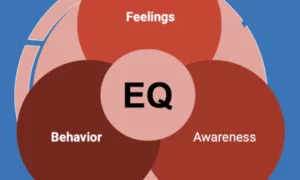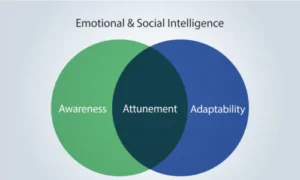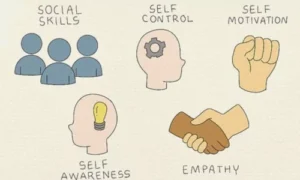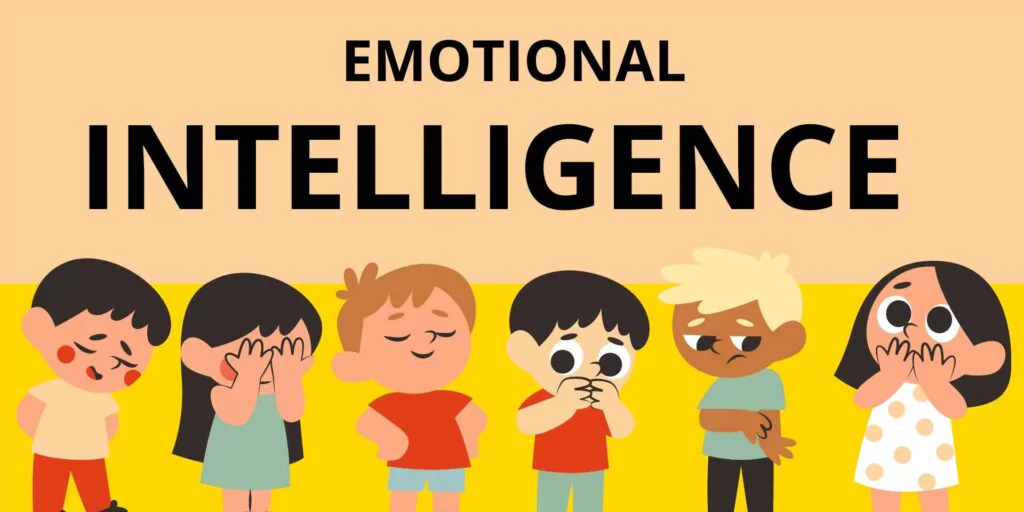Raising confident children begins with developing emotional intelligence (EQ). Emotional intelligence is defined as the capacity to perceive, analyze, manage, and effectively express emotions. Strong EQ helps youngsters develop self-awareness, empathy, resilience, and social skills, all of which are essential for long-term confidence.
1. Understanding Emotional Intelligence in Children

Emotional intelligence includes five core components:
- Self-awareness: Recognising one’s emotions and how they affect behaviour.
- Self-regulation: Managing emotions in healthy ways.
- Motivation: Being driven to achieve and grow.
- Empathy: Understanding how others feel.
- Social skills: Building positive relationships.
Children with strong EQ can express themselves clearly, navigate social challenges, and handle setbacks without losing confidence.
Also See: Self-Motivation Skills Every Child Should Learn
2. How EQ Builds True Confidence

Confidence isn’t just about believing you can succeed—it’s also about how you react when things go wrong. Emotional intelligence teaches children to:
- Handle failure and criticism constructively.
- Stand up for themselves respectfully.
- Adapt to new situations without fear.
- Communicate assertively, not aggressively.
A confident child knows that mistakes don’t define them—they are learning moments.
3. The Role of Parents in Developing Emotional Intelligence

Parents and caregivers play a huge role in nurturing EQ:
- Label emotions: Help children name their feelings—“You seem frustrated,” or “I see you’re excited.”
- Validate feelings: Let them know it’s okay to feel what they’re feeling.
- Model emotional control: Show calmness and empathy in your reactions.
- Teach problem-solving: Guide them through resolving conflicts or setbacks, rather than solving everything for them.
4. Emotional Intelligence and Social Confidence

Children with EQ make friends more easily and enjoy healthier relationships. They:
- Read social cues better.
- Show kindness and empathy.
- Resolve conflicts peacefully.
- Feel secure in group settings.
These social strengths fuel confidence because children feel accepted, valued, and understood
5. Practical Ways to Boost EQ at Home

Here are some simple, daily practices to build emotional intelligence in kids:
- Emotion check-ins: Ask “How was your day? What made you happy or upset?”
- Storytelling with emotions: Read stories and discuss how characters feel.
- Mindfulness activities: Practice breathing exercises and quiet reflection.
- Play-based learning: Role-play scenarios to explore empathy and solutions.
6. Long-Term Benefits of Emotional Intelligence

Children who develop EQ early are more likely to:
- Perform better academically.
- Become strong leaders.
- Manage stress and anxiety effectively.
- Grow into emotionally balanced adults.
Confidence built on emotional awareness lasts longer than confidence built on achievement alone.
Conclusion
Emotional intelligence is more than simply a soft talent; it is a strong tool that influences how children perceive themselves and their surroundings. When children learn to understand and manage their emotions, they gain unwavering confidence, which sets them up for a lifetime of achievement and fulfilment.







Mariann Hoomana
July 7, 2025campaigncraft.click – Color palette felt calming, nothing distracting, just focused, thoughtful design.